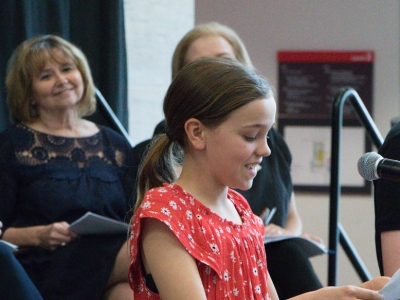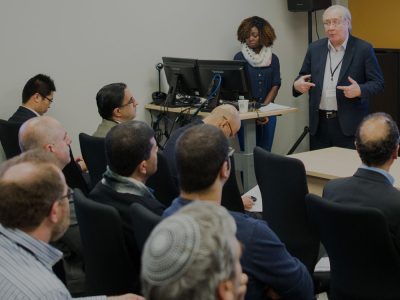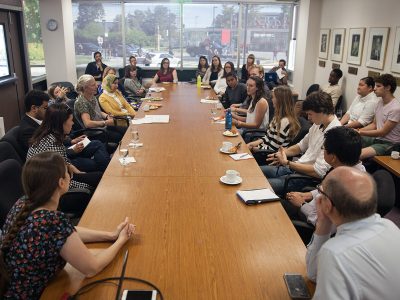By Beth Gorham
Traditional drumming at Convocation ceremonies. Elaborate beadwork clothing. The voices of Elders delivering powerful messages. The sweet smell of burning sage during a smudging ceremony. Occasions enjoyed with a menu of Algonquin fare. A classroom watching a video about decolonization.
These signposts of Indigenous life and ways of knowing are more prevalent than ever these days at Carleton University. They symbolize a determined approach to removing barriers and boosting success for Indigenous students, staff and faculty while making them feel more comfortable.
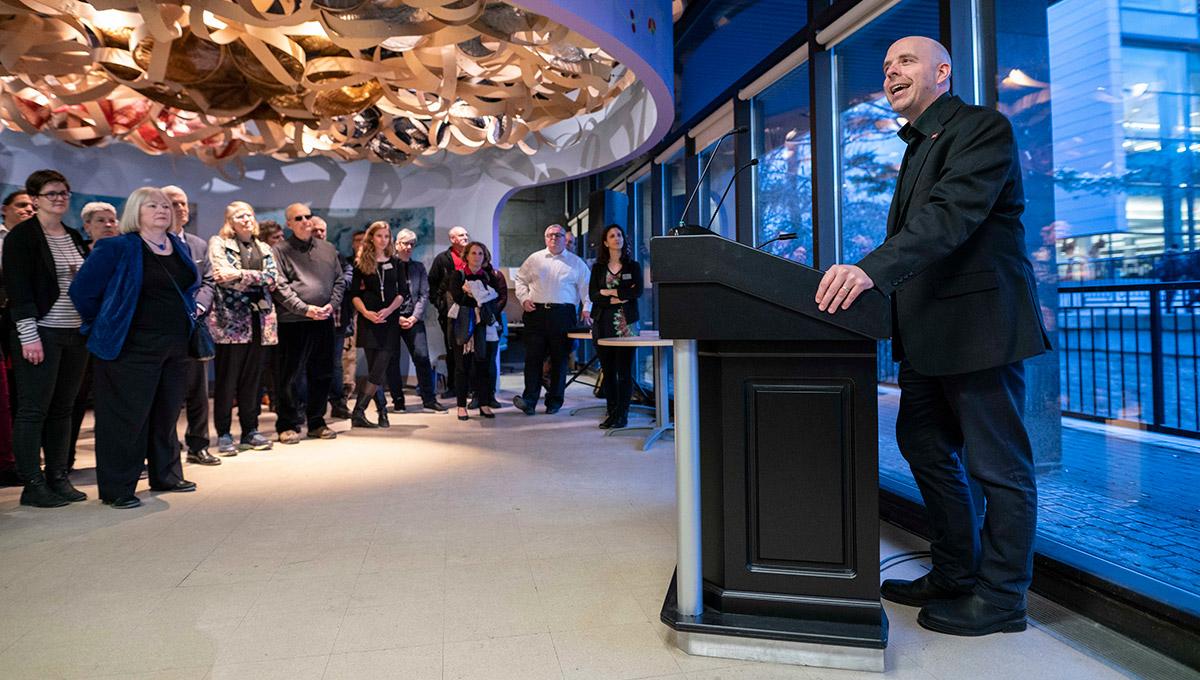
President Benoit-Antoine Bacon speaks at the launch of the Collaborative Indigenous Learning Bundles
Last December, President Benoit-Antoine Bacon announced a committee tasked with devising a concrete response to the federal government’s Truth and Reconciliation Commission and forging stronger relationships with Inuit, First Nation and Métis on campus, in the Ottawa region and across the country.
Now halfway through its mandate, Carleton University’s Indigenous Strategic Initiatives Committee (CUISIC) has conducted more than 30 consultations – on campus and off – that included more than 370 people.
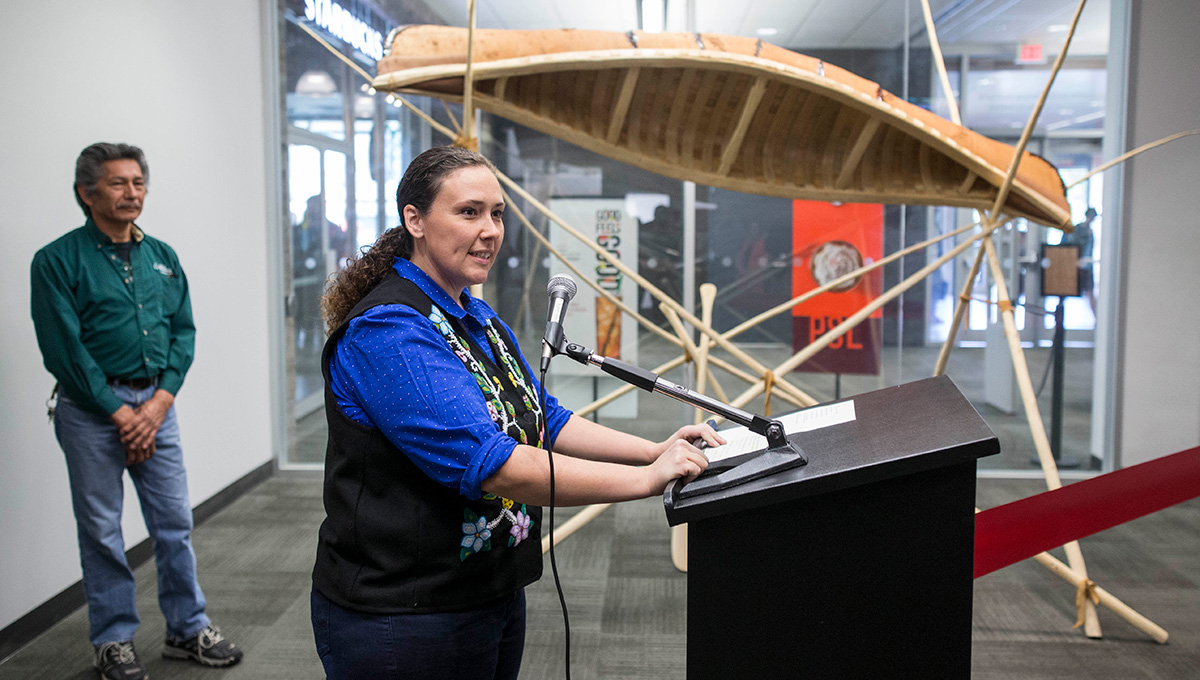
Consulting on Indigenous Initiatives
More external consultations will be conducted over the summer.
“We’re casting a huge net – we’re doing it the right way,” says Prof. Kahente Horn-Miller, who is leading the effort with co-chairs Benny Michaud, assistant director of Equity Services responsible for the Centre for Indigenous Initiatives, and Vice-President (Academic) Jerry Tomberlin.
“When we come up with the implementation plan, that’s where it will pay off,” she told a recent meeting of the committee, which comprises 32 internal and external members. There is a student subcommittee as well.
Says Tomberlin: “There’s a real receptivity, almost a demand, to be included. People reached out to ask us to come and consult with them.”
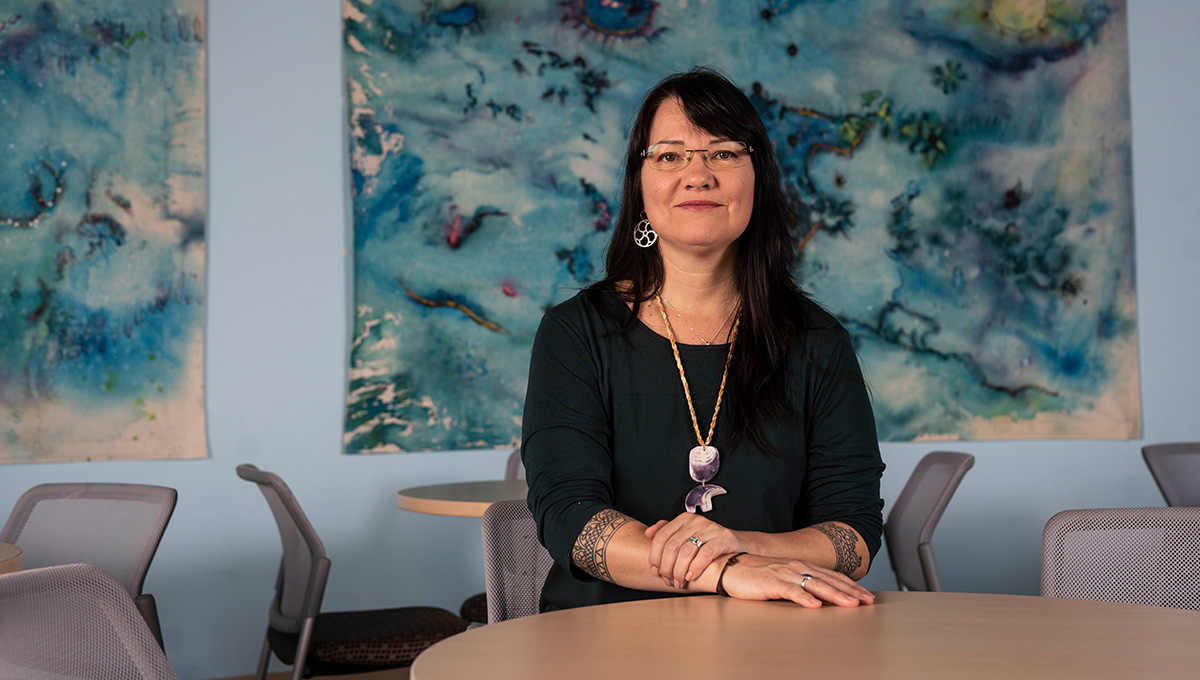
Prof. Kahente Horn-Miller
In January, the committee developed seven themes to guide consultations on Indigenous initiatives and determine how they would unfold.
The co-chairs began discussions in February with faculty and continued through June with sessions that included union members, students, instructors, members of various faculties, librarians, Carleton executives, managers, Senate and the Board of Governors.
Outside consultations so far have included Kitigan Zibi Anishinabeg, Indigenous Service Providers in Ottawa, Original Voices Youth Council, Assembly of Seven Generations and Tungasuvvingat Inuit.
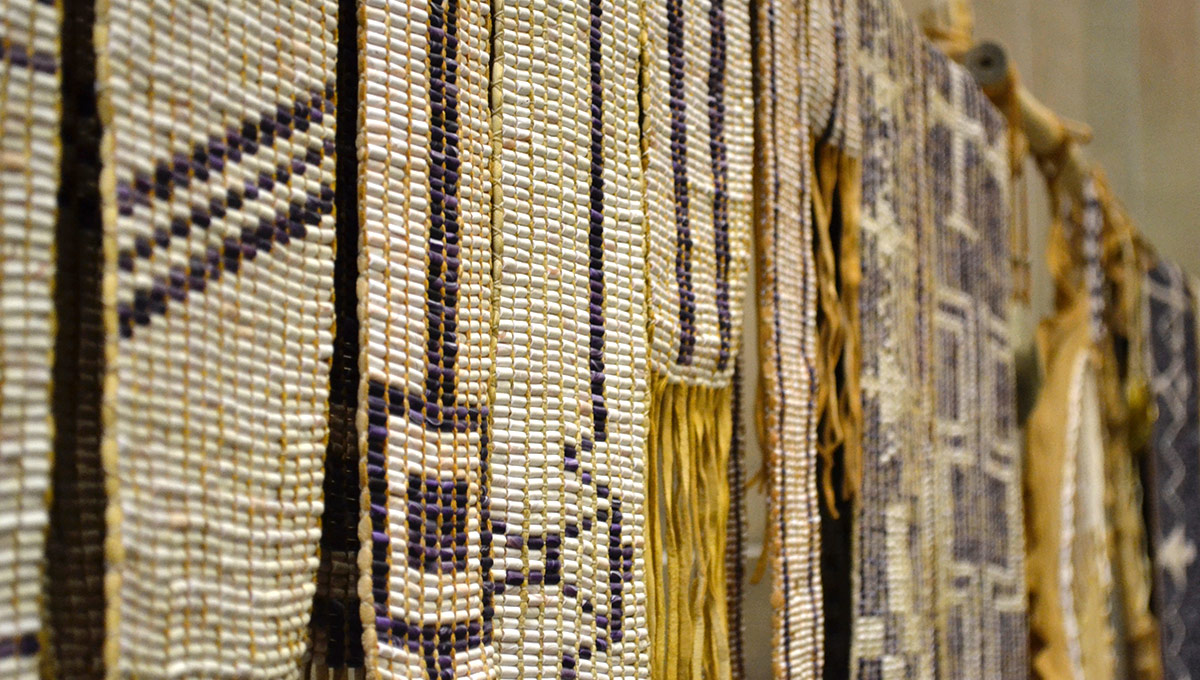
Ideas for Indigenous Engagement
The first discussion theme, Community Engagement, has been attracting comments about the need for more language training at Carleton, more cultural events and boosting community recruitment and tours for Indigenous students, the co-chairs say.
Some suggested teaching courses in Indigenous communities to give residents a sense of what would be available to them on campus.
Carleton faculty are also asking for more tools to prepare them to engage with Indigenous communities, which could lead to more professional development training.
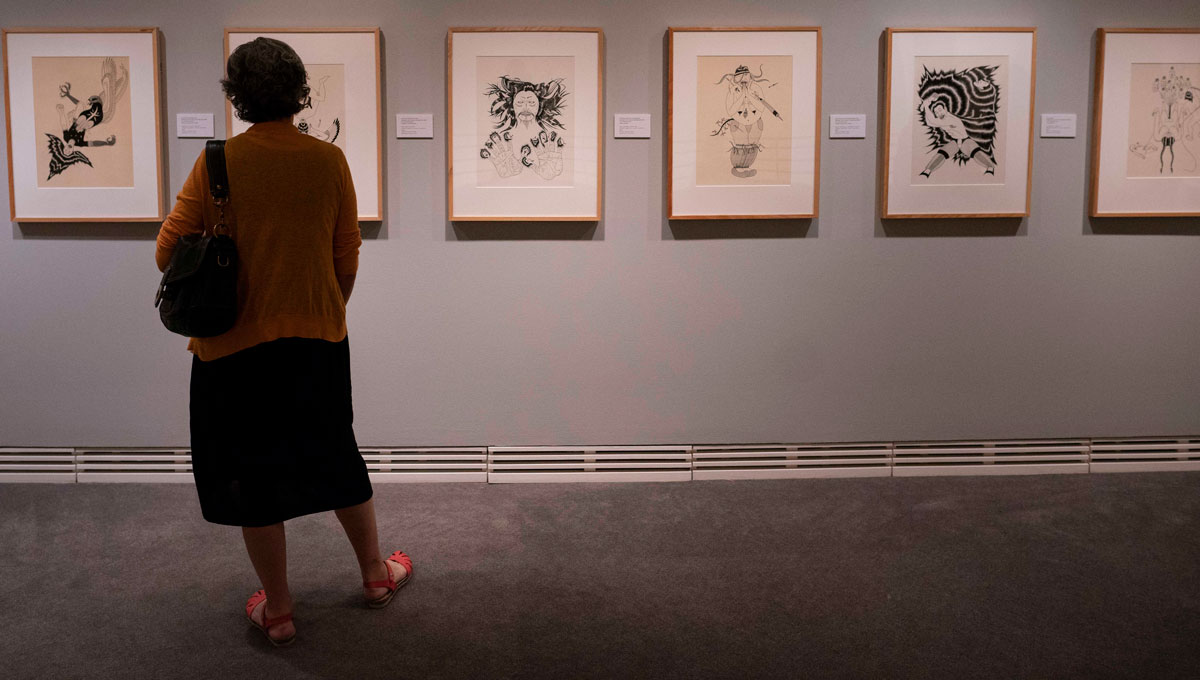
The Carleton University Art Gallery welcomed about 150 visitors Sept. 17 to celebrate the opening of its fall exhibitions consisting of Indigenous art and curation—Alootook Ipellie: Walking Both Sides of an Invisible Border and Here Be Dragons/Attention, dragons!
In discussions about the second theme, Ways of Teaching and Learning, some have suggested developing core competencies about Indigenous knowledge and history for staff, faculty and students, the use of more land-based learning, circle learning spaces and taking students into Indigenous communities.
The third theme, Student Support, has sparked suggestions for a designated Indigenous building or a dedicated space in a current one, helping faculty and students to feel less isolated in pockets across campus. Currently, the Ojigkwanong Centre in Paterson Hall is a hub for student activities throughout the year.
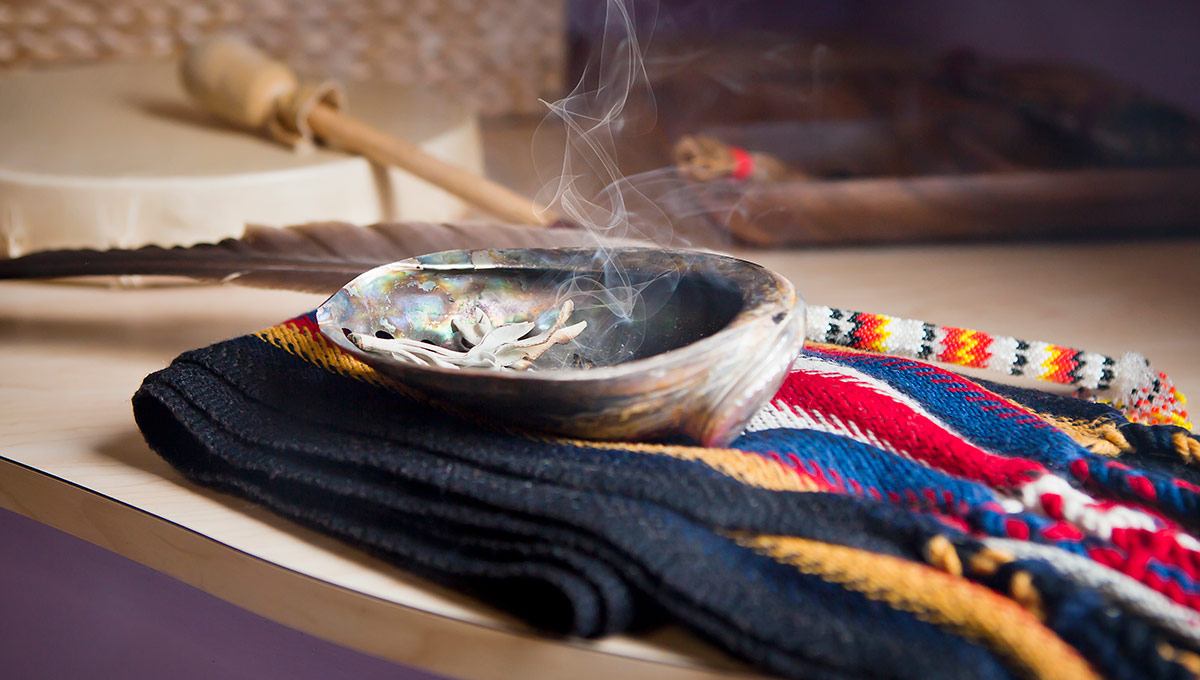
A New Relationship Between Carleton and Indigenous Peoples
As for Culture, Systems and Structure, the fourth theme, participants in consultations have suggested more Indigenous representation at the senior management level, changing requirements to allow more Knowledge Keepers to teach here, an Indigenous residence and some reserved seats in popular programs for Indigenous students.
When it comes to Research and Innovation, the fifth theme, ideas discussed include developing an Indigenous Research Institute, ethics committee and a guide for Indigenous-related research. Research could focus on preserving and replenishing land and water and devising solutions to community needs.
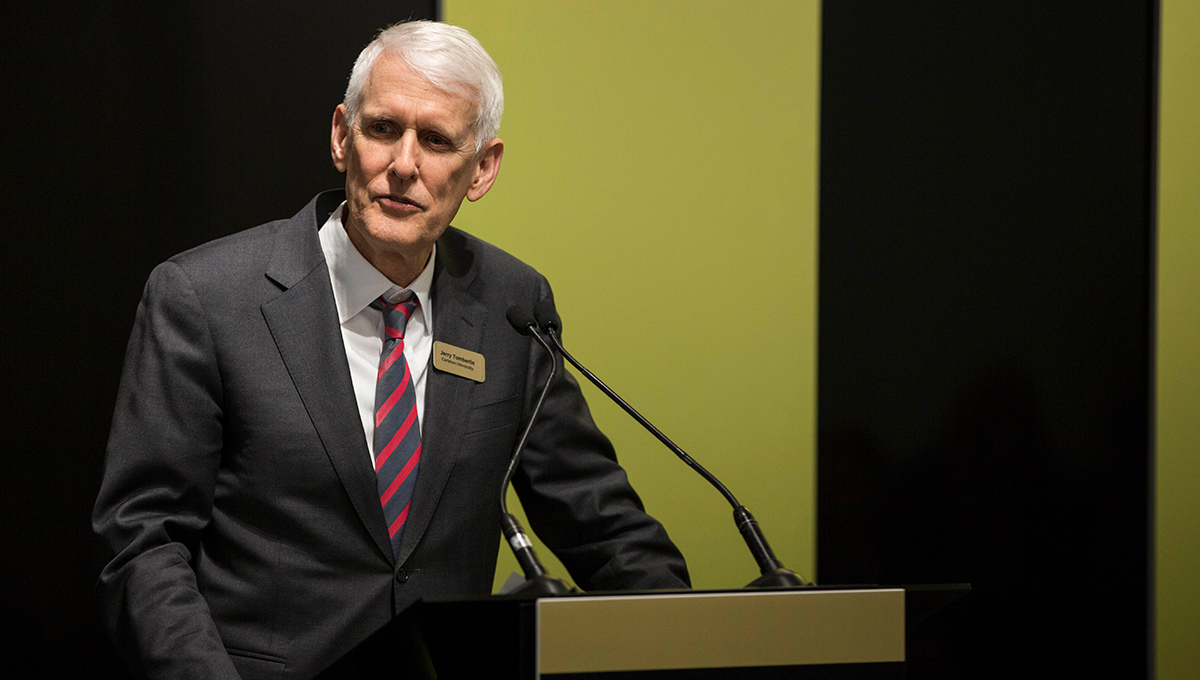
Jerry Tomberlin, Provost and Vice-President (Academic)
The Student Experience theme has provoked discussions about investigating alternative entry pathways for Indigenous students, more core funding for recruitment, and additional funds for students in financial crisis.
The final theme, Metrics, is aimed at getting a sense of what information is required from Indigenous students in order to better serve them, leading to suggestions of a campaign to encourage them to self-identify as Indigenous.
“At the heart of this work is relationships between Carleton and Indigenous peoples and re-envisioning what that can look like,” says Michaud.
“To prioritize nurturing this relationship is to demonstrate a commitment to change the way in which we relate to one another.
“We are working to create space at Carleton for thinking differently about the history of Canada and that means being uncomfortable at times. It means helping non-Indigenous students, staff and faculty at Carleton to situate themselves within the context of colonization. Only then can we move towards reconciling and decolonizing.”
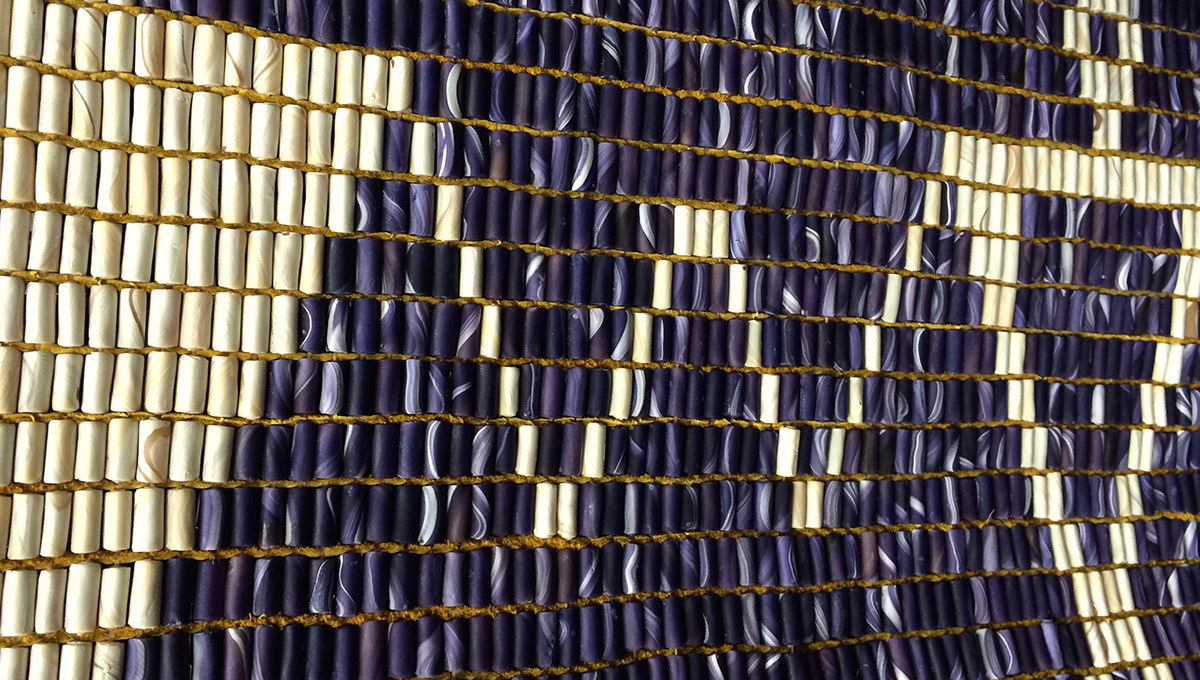
Unique Calls to Action at Carleton
As external consultations continue this summer, the co-chairs will sift through the results and begin to draft a final report, which CUISIC will review in August.
The draft will be widely available for feedback in September and October before it is finalized near the end of the year. It will include a vision statement with Carleton-specific Calls to Action and timelines.
Implementation begins in January 2020.
“This report and our Calls to Action will be very unique,” says Horn-Miller.
Comments on the themes can be provided at any time at: https://carleton.ca/indigenousinitiatives/feedback/.
Tuesday, July 2, 2019 in Indigenous
Share: Twitter, Facebook

